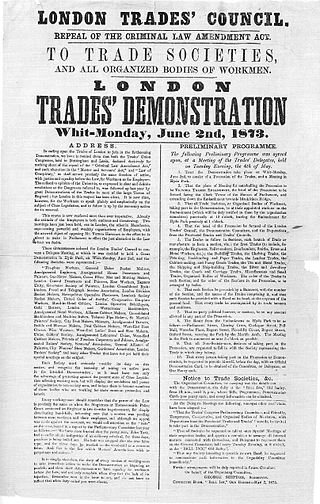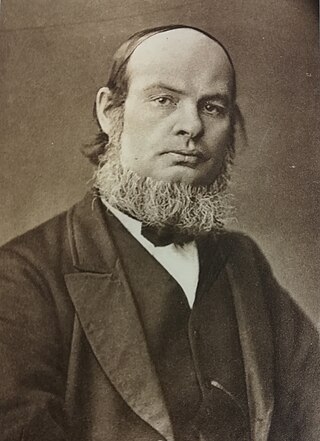Related Research Articles

Odd Fellows is an international fraternity consisting of lodges first documented in 1730 in London. The first known lodge was called Loyal Aristarcus Lodge No. 9, suggesting there were earlier ones in the 18th century. Notwithstanding, convivial meetings were held "in much revelry and, often as not, the calling of the Watch to restore order." Names of several British pubs today suggest past Odd Fellows affiliations. In the mid-18th century, following the Jacobite risings, the fraternity split into the rivaling Order of Patriotic Oddfellows in southern England, favouring William III of England, and the Ancient Order of Oddfellows in northern England and Scotland, favouring the House of Stuart.

The Independent Order of Oddfellows Manchester Unity Friendly Society Limited, also called the Manchester Unity of Oddfellows; trading as The Oddfellows, is a fraternal order founded in Manchester in 1810.

The Ceramic and Allied Trades Union (CATU) was a trade union representing pottery workers in the United Kingdom.
Owenism is the utopian socialist philosophy of 19th-century social reformer Robert Owen and his followers and successors, who are known as Owenites. Owenism aimed for radical reform of society and is considered a forerunner of the cooperative movement. The Owenite movement undertook several experiments in the establishment of utopian communities organized according to communitarian and cooperative principles. One of the best known of these efforts, which was unsuccessful, was the project at New Harmony, Indiana, which started in 1825 and was abandoned by 1827. Owenism is also closely associated with the development of the British trade union movement, and with the spread of the Mechanics' Institute movement.
The Rochdale Society of Equitable Pioneers, founded in 1844, was an early consumers' co-operative, and one of the first to pay a patronage dividend, forming the basis for the modern co-operative movement. Although other co-operatives preceded it, the Rochdale Pioneers co-operative became the prototype for societies in Great Britain. The Rochdale Pioneers are most famous for designing the Rochdale Principles, a set of principles of co-operation, which provide the foundation for the principles on which co-ops around the world operate to this day. The model the Rochdale Pioneers used is a focus of study within co-operative economics.

The Modern Records Centre (MRC) is the specialist archive service of the University of Warwick in Coventry, England, located adjacent to the Central Campus Library. It was established in October 1973 and holds the world's largest archive collection on British industrial relations, as well as archives relating to many other aspects of British social, political and economic history.
New Model Trade Unions (NMTU) were a variety of Trade Unions prominent in the 1850s and 1860s in the UK. The term was coined by Sidney and Beatrice Webb in their History of Trade Unionism (1894), although later historians have questioned how far New Model Trade Unions represented a 'new wave' of unionism, as portrayed by Webbs.

The Operative Bricklayers' Society (OBS) was a British New Model Trade Union based in London.
The United Order of General Labourers was a trade union representing labourers, mostly in the construction industry, in the United Kingdom.

The Amalgamated Union of Building Trade Workers (AUBTW) was a British trade union.

The London Trades Council was an early labour organisation, uniting London's trade unionists. Its modern successor organisation is the Greater London Association of Trades (Union) Councils
Unity Credit Union Limited, formerly Manchester Unity Credit Union, is a not-for-profit member-owned financial co-operative, based in Manchester and operating throughout the United Kingdom. The credit union was first established for members of the Independent Order of Oddfellows by Manchester Unity Friendly Society in 1991.

Edwin Coulson was a British trade unionist.
Sir Richard Coppock was a British trade unionist and politician.

The London builders' strike of 1859 was a strike and resulting lock out of building trade workers across London. The action did not result in any changes to working conditions, but it led to the formation of new, national trade unions in the United Kingdom.
The National Federation of Building Trades Operatives (NFBTO) was a trade union federation in the United Kingdom, consisting of unions with members in construction and related industries.

The Printing and Kindred Trades Federation (P&KTF) was a trade union federation in the United Kingdom.
The Operative Society of Masons, Quarrymen and Allied Trades of England and Wales was a trade union representing stonemasons and related workers in the United Kingdom.
The United Builders' Labourers Union was a trade union representing labourers in the construction industry in the United Kingdom.
The Operative Builders' Union was an early trade union federation representing construction and maintenance workers in the United Kingdom.
References
- 1 2 Arthur Marsh and Victoria Ryan, Historical Directory of Trade Unions, vol.3, pp.39-40
- ↑ Postgate, Raymond (1923). The Builders' History. London: National Federation of Building Trade Operatives. p. 461.
- 1 2 3 4 5 Trade Union Ancestors, "Friendly Society of Operative Stonemasons Archived 2016-10-06 at the Wayback Machine "